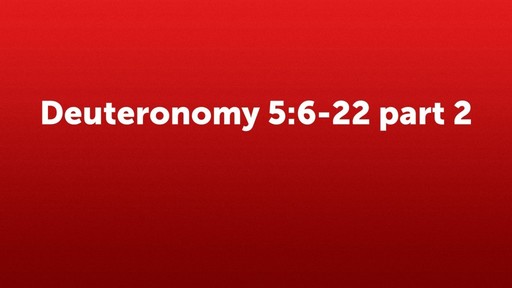Deuteronomy 5:6-22 part 2

The Decalogue Itself
Two Tablets
Ten Words
Some people have said that, in the end, all of the commands in the Decalogue relate to coveting. Why would you have another god? Because your god is not giving you enough. You want more. In this interpretation—“You shall not covet your neighbor’s wife. You shall not covet your neighbor’s household and properties,” whatever else—the point here is there is to be righteousness and integrity within the heart, the inner being of the Israelite.
In Hebrew, the word 'ahav means: love, a covenant commitment demonstrated in action in the interest of the other person; that’s love. And now we understand Jesus. You shall demonstrate love for your God with all your being, with all your resources, by acting in His interests. And you shall demonstrate covenant commitment toward your neighbor by acting in their interests.
Jesus has encapsulated not only the Decalogue, but all the constitutional documents that sprout from this document. This is the key to Deut 5; this is the key to the book of the covenant in Exod 20:22–23:19; this is the key to the instructions on holiness in Lev 17–26; and this is the key to Deuteronomy: love. If we demonstrate covenant commitment to God, we will always seek His honor, His reputation, His glory. And if we demonstrate covenant commitment to our neighbors, we will always seek their well-being ahead of our own, which is why Jesus can say, “Greater love has no one than this, that a person lay down his or her own life for his friends.” That’s love—where I am willing to sacrifice myself for my neighbors, my family members, for the Lord Himself.
